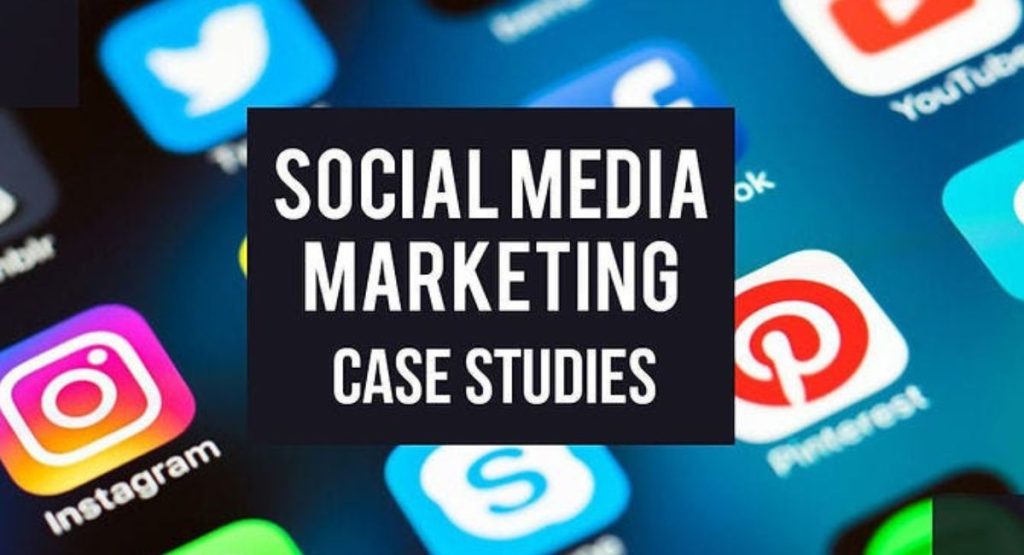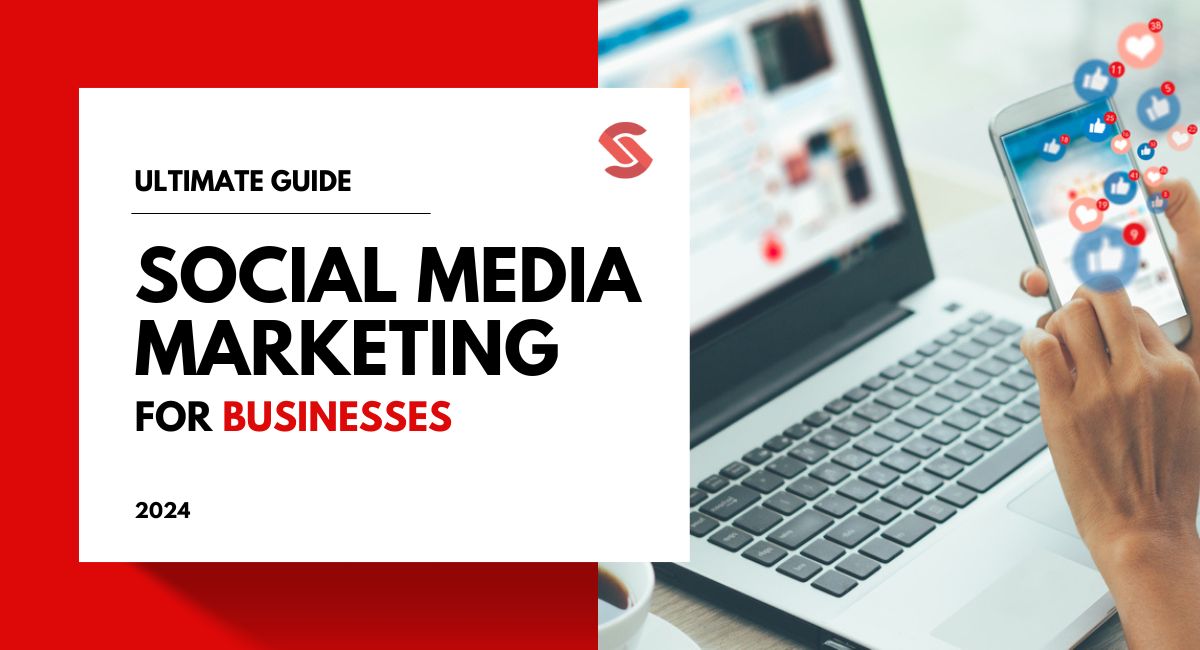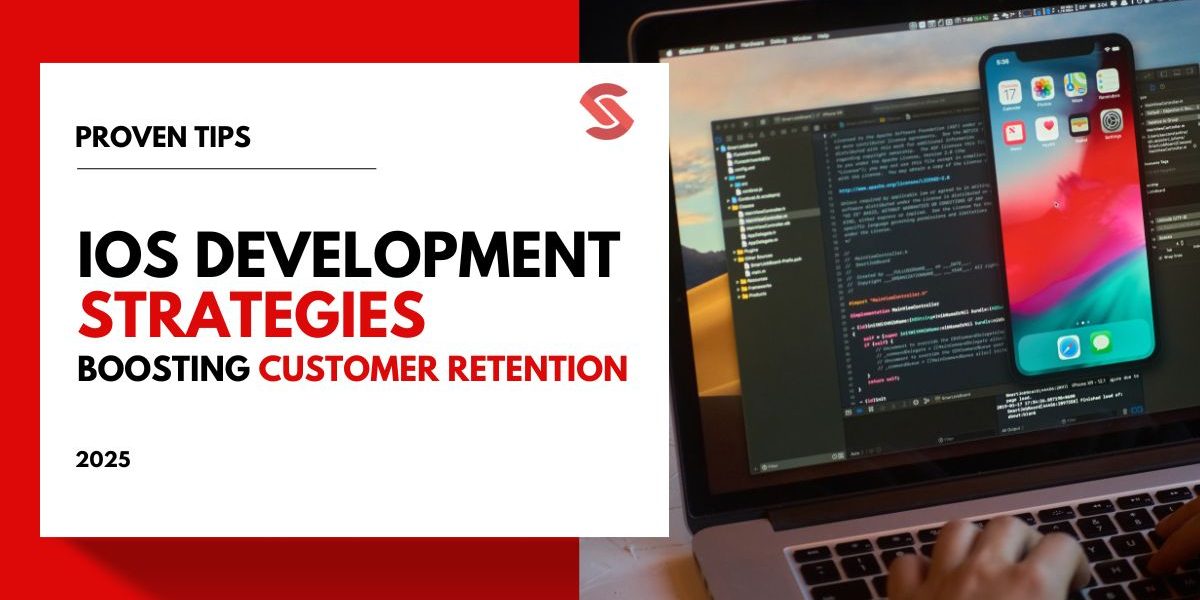There was a time when newspapers were our main news source, but today, social media has transformed into a global village, making it a powerful marketing tool for brands. In this blog, we will be discussing the changing role of social media in business, exploring how it has revolutionized marketing strategies and spurred business growth.
Later we will discuss the essential role of social media marketing in digital transformation, offer insights on current market trends, and provide expert tips. Learning about social media marketing is important for businesses. Stay with us to learn all about social media advertising and the latest developments.
What is Social Media Marketing?

Social media marketing focuses on connecting with your audience through social platforms to build your brand and strengthen relationships. It involves creating and sharing content, such as posts, videos, and ads that engages your audience and promotes interaction. This approach increases brand exposure and enhances customer interaction, transforming followers into loyal supporters.
It’s not just about posting advertisements; it’s about initiating conversations and crafting experiences that resonate with users. By engaging actively, brands can discover what their customers appreciate, leading to improved services and products. Social media marketing services is crucial for anyone aiming to expand their presence and influence on social platforms.
Benefits of Social Media Marketing for Business

1. Increase Your Brand Awareness
To increase your brand awareness, leveraging social media platforms is essential. You can significantly enhance your brand’s visibility and recognition by consistently posting engaging content, utilizing targeted ads, and actively interacting with followers. These strategies help expand your reach by connecting with new customers and reinforcing relationships with existing ones. Effectively, this boosts your presence across various digital channels, making social media a powerful tool for growing your brand’s influence and audience engagement.
2. Generate Leads and Boost Conversions
Social media is a powerhouse for lead generation and boosting conversions. By crafting targeted campaigns, businesses can engage directly with potential customers, guiding them through the buying process. Effective use of PPC services, interactive posts, and personalized responses can turn casual browsers into serious buyers, enhancing sales conversions. This approach ensures that every campaign is an opportunity to grow your customer base and increase revenue.
3. Meaningful Connection with Your Customers
Social media stands out as a tool for creating meaningful connections with your customers. Engaging directly on these platforms allows brands to foster loyalty and enhance customer satisfaction. By responding promptly to messages, sharing relatable content, and hosting interactive sessions like live videos, businesses can strengthen customer relationships. This active engagement makes customers feel valued and more connected to your brand, boosting their overall satisfaction and loyalty.
4. Make Data-Driven Business Decisions with Gathering Real-Time Insights
Social media provides a treasure trove of data that can guide data-driven business decisions. By utilizing analytics tools, companies can gather real-time insights into customer behaviors and preferences. This valuable information helps in refining marketing strategies and improving product offerings. Analyzing trends and engagement patterns allows businesses to adapt quickly, ensuring they meet their customers’ needs effectively and stay ahead in competitive markets.
5. Competitive Analysis through Social Media
Social media is an excellent platform for competitive analysis. By monitoring competitors’ activities, businesses can gain valuable market intelligence. Observing how rivals engage with their audience, the content they post, and the promotions they run offers insights into what works and what doesn’t. This information allows companies to adapt their strategies, ensuring they stay competitive and relevant in their industry. Learning from competitors’ successes and missteps helps refine your approach and enhance your marketing effectiveness.

Want to turn likes into leads? Let’s make it happen.
The Best Social Media Marketing Platforms for Business

Overview of Major Platforms
When selecting social media platforms for business marketing, it’s important to consider each platform’s unique features and the specific demographics they attract. Facebook, with its vast user base, offers broad reach and detailed targeting options. YouTube excels in video marketing, providing a platform for long-form content and storytelling. Instagram is ideal for visual branding, attracting a younger, image-focused audience. LinkedIn serves as a network for professionals and is perfect for B2B marketing. Twitter offers real-time engagement and is great for brand visibility and updates. Snapchat appeals to younger demographics with its ephemeral content, while TikTok is rapidly gaining traction for its viral video capabilities and youthful audience.
Here’s a brief overview of the major social media platforms and how businesses can leverage them effectively:
- Facebook: Ideal for reaching a diverse audience. Offers targeted advertising and community engagement through groups.
- YouTube: Best for video content. Helps in brand storytelling and product demos to engage users.
- Instagram: Great for visual content. Utilizes stories and posts to showcase products and engage younger demographics.
- LinkedIn: The go-to for B2B marketing. Focuses on professional networking and industry-specific content.
- Twitter: Fast-paced platform suitable for real-time updates and customer service interactions.
- Snapchat: Appeals to younger audiences. Uses ephemeral content to create a sense of urgency and exclusivity.
- TikTok: Rapidly growing platform. Uses short, creative videos to capture attention and encourage user interaction.
Each platform offers unique features that cater to specific audience demographics, making them valuable for targeted marketing strategies.
In-depth Platform-Specific Advanced Features
Social media platforms offer advanced features designed for targeted marketing and enhanced engagement. Instagram Stories, used by over 500 million accounts daily, allows businesses to post content that captures fleeting attention spans.
Facebook Pixel assists in tracking conversions from approximately 2.89 billion monthly active users, optimizing ad performance through retargeting. LinkedIn Sales Navigator taps into a network of over 700 million professionals for lead generation and relationship building.
TikTok for Business leverages the platform’s 1 billion monthly active users to encourage creative content that can rapidly go viral, significantly boosting brand visibility. These tools are essential for marketers aiming to maximize their social media strategy.
Developing a Strategic Approach to Social Media Marketing

Setting Clear Social Media Goals
Setting clear social media goals is crucial for effective marketing. Start by identifying what you want to achieve, whether it’s increasing brand awareness, driving sales, or boosting customer engagement. Goals should be specific, measurable, achievable, relevant, and time-bound (SMART) to ensure they align with your overall business strategy. This focused approach helps in allocating resources effectively and measuring success, enabling continuous improvement in your social media tactics.
Sample B2B Social Media Goals and KPIs
For B2C companies, effective social media goals and KPIs are pivotal. Typical goals include boosting brand visibility, increasing sales, and enhancing customer loyalty. KPIs often measure engagement rates, the volume of leads generated, and sales conversion rates. These indicators guide budget allocation in digital marketing, ensuring investments are made strategically to target consumers effectively. Such goal-setting helps businesses optimize their social media strategies to achieve significant consumer engagement and loyalty.
Create a Social Media Strategy for Your Business
Creating a social media strategy for your business involves a clear step-by-step process. Begin by defining your target audience and objectives. Next, choose the right platforms where your audience is most active. Develop a content plan that aligns with your goals and resonates with your audience. Lastly, establish a schedule for consistent posting and engage actively with followers. This strategic approach ensures your social media efforts are focused and effective, maximizing your online presence and impact.
Executing Your Social Media Marketing Plan

Content Creation and Curation
Content creation and curation are crucial for maintaining an effective social media presence. Strive to develop diverse content that resonates with your brand’s voice and values.
This includes creating original content, which, according to studies, can increase engagement by up to 80%. Curating relevant information from reliable sources, and repurposing past successful content, such as videos that see a 54% increase in brand awareness help enhance engagement.
Employ a variety of formats like videos, which account for 82% of all consumer internet traffic, blogs, and infographics to keep your audience engaged and interested. These strategies ensure your content remains fresh and appealing, driving ongoing engagement and interest in your brand.
Leverage Advanced Social Media Features
Using advanced social media features can significantly boost your marketing campaigns through effective marketing automation. Facebook Pixel facilitates detailed tracking and retargeting, optimizing your ad spend by up to 30%. Instagram Stories, engaging daily with over 500 million viewers, offer creative ways to connect with your audience.
LinkedIn Sales Navigator targets the right business prospects within a network of over 700 million professionals. By incorporating these tools, you can enhance your campaign’s reach and effectiveness by as much as 25%, providing valuable insights and fostering better connections with your audience. These features are key to deepening engagement and maximizing returns on investment.
Measuring and Analyzing Social Media Impact

Key Performance Indicators and Metrics
Understanding the impact of social media requires a keen eye on Key Performance Indicators (KPIs) and metrics. These are the vital signs of your online presence, revealing what’s working and what needs tweaking. From engagement rates and reach to conversions and sentiment analysis, these metrics paint a clear picture of your performance. Armed with this data, you can fine-tune strategies and maximize your social media success.
Adjusting Your Strategy Based on Analytics
Utilizing analytical insights is essential when it comes to refining your social media strategy. By carefully examining metrics and performance data, you can make informed adjustments that optimize your plans for maximum impact. This process of strategy refinement is essential for continuously improving your marketing efforts and ensuring that your tactics align with your goals. Through this approach, you can enhance performance and stay ahead in the dynamic landscape of social media marketing.
Enhancing Social Media with Advanced Marketing Techniques

Integrating social media with other marketing efforts is essential for maximizing your online presence. A unified approach allows each platform to complement one another effectively. For instance, social media can enhance email campaigns by driving traffic to your website or generating buzz around special promotions.
Similarly, integrating social media with content marketing and SEO services can boost visibility and engagement across multiple channels. This cross-platform synergy not only expands your reach but also reinforces your brand message consistently. By seamlessly incorporating social media into your broader marketing strategy, you create a cohesive and dynamic online presence that resonates with your audience and drives results.
Present Social Media Case Studies and Real-World Examples

Exploring successful social media campaigns provides valuable insights into effective marketing strategies. By analyzing case studies, we uncover real-world examples of strategies that succeed in the dynamic online environment. These studies offer detailed analyses of various campaigns, highlighting the strategies used, outcomes achieved, and key lessons learned. From viral sensations to targeted niche campaigns, each case study provides unique insights into campaign effectiveness, informing future strategies.
For instance, campaigns utilizing user-generated content often see a 28% higher engagement rate compared to those that don’t. Meanwhile, campaigns that involve influencers can result in a 10% increase in conversion rates. Additionally, crafting compelling storytelling in campaigns can boost brand recognition by up to 70%.
By learning from these successes, marketers can adapt and refine their strategies to better engage their audience and drive results. This becomes crucial when allocating a budget for digital marketing, as understanding what works helps in maximizing the return on investment. Through careful examination and strategic insights, marketers can navigate the ever-evolving landscape of social media with confidence and creativity.
Facing Challenges and Achieving Opportunities in Social Media

Crisis Management on Social Media
Challenging crises on social media demand swift and strategic action. Effective crisis management involves proactive monitoring and responsive communication to address negative feedback and PR challenges. By implementing tailored strategies, brands can protect their reputation and maintain trust with their audience. Real-time engagement and transparent communication are key in mitigating the impact of crises and turning challenges into opportunities for growth.
Influence Marketing
Influence marketing is about teaming up with the right personalities to amplify your brand’s message. It involves carefully selecting influencers who align with your values and resonate with your target audience. By measuring the return on investment (ROI) of these partnerships and ensuring legal compliance, you can maximize the impact of your influencer campaigns. Effective influencer marketing requires strategic planning and a deep understanding of your audience’s preferences.
Accessibility and Inclusivity on Social Media
Ensuring accessibility and inclusivity on social media is paramount for reaching diverse audiences. It involves implementing features and practices that accommodate users with disabilities and promote equality. By adopting inclusive design principles and providing alternative text for multimedia content, brands can make their social media platforms more accessible to everyone. Accepting diversity and fostering an inclusive online community enriches the user experience and strengthens the brand reputation.
Emerging Technologies and Trends
Exploring emerging technologies and trends in social media offers a glimpse into the future of marketing. From AI-powered tools that streamline engagement to augmented reality experiences that enhance brand interactions, these innovations are reshaping the field. Privacy and data protection remain crucial considerations as technology advances, influencing how brands navigate user trust and regulatory compliance. Understanding and embracing these trends is essential for staying ahead in the ever-evolving world of social media marketing.
What Social Media Marketing Services do Softnix Offer?

Increase your social media ROI with top-notch social media marketing services
Softnix offers a range of professional social media marketing services tailored to enhance your online presence. From crafting effective strategies to full-service management, we provide cost-effective solutions to meet your needs. Our team of experts ensures that your social media efforts align with your goals and resonate with your audience. Whether you’re looking to boost engagement, drive traffic, or increase brand awareness, Softnix has you covered. As a full-service digital agency, we’re dedicated to helping you achieve success in the competitive world of social media marketing.
Final Thoughts
In mastering social media marketing, remember that evolution is key. By summarizing the key points of this guide, you’re equipped to stay ahead in the ever-changing world of digital marketing. Continuous learning and adaptation are essential for keeping pace with the dynamic nature of social media. Adapt the future of social marketing with confidence, knowing that each step forward is an opportunity for growth. Keep exploring new strategies and trends, and watch your efforts in social media marketing flourish. Your journey towards social media mastery is just beginning!
FAQs Related To Social Media Marketing
1. What is social media marketing?
Social media marketing is a strategic approach focused on using social platforms to connect with your audience, build your brand, increase sales, and drive website traffic. This includes publishing content, engaging with followers, analyzing results, and running advertisements.
2. How does social media marketing help in increasing brand awareness?
Social media marketing enhances brand awareness by facilitating direct interaction between businesses and their customers. Consistent, engaging content increases visibility and encourages sharing, which expands reach and attracts new customers.
3. Can social media marketing directly increase sales?
Social media can directly increase sales by targeting ads, offering promotions, and utilizing platform-specific sales features like Instagram Shopping or Facebook Marketplace, making it easier to convert followers into customers.
4. What are some effective social media marketing strategies?
Effective strategies include maintaining a consistent posting schedule, utilizing targeted advertisements, engaging actively with followers, and collaborating with influencers to extend reach and credibility.
5. How important is content variety in social media marketing?
Content variety is crucial as different formats like videos, live streams, infographics, and blogs cater to various audience preferences, keep content fresh, and boost engagement rates across platforms.
6. What role do influencers play in social media marketing?
Influencers enhance brand visibility and credibility by leveraging their followings. Their endorsements help humanize the brand and authentically reach potential customers.
7. How can businesses measure the success of their social media marketing efforts?
The success of social media marketing can be gauged using metrics such as engagement rate, reach, follower growth, and conversion rate, with tools like Google Analytics and native platform analytics providing essential insights.
8. What are some common challenges in social media marketing?
Common challenges include adapting to changing platform algorithms, managing customer expectations, consistently producing high-quality content, and quantifying the return on social media investments.
9. How does social media marketing support other marketing efforts?
Social media enhances other marketing efforts by increasing content visibility, driving website traffic, and enhancing email marketing strategies through increased social shares.
10. What is the best way to handle crises on social media?
The best way to handle crises is to respond quickly and professionally, maintain transparency, and communicate effectively across all channels. Proactive monitoring helps in early detection and management of potential issues.
11. What future trends in social media marketing should businesses be aware of?
Businesses should monitor trends like the use of artificial intelligence, the importance of personalization and consumer privacy, the rise of ephemeral content like Stories, and the expansion of social commerce.
12. How can a business develop a strategic social media marketing plan?
Developing a strategic plan involves defining clear goals, understanding the target audience, selecting the right platforms, planning content that aligns with business objectives, and regularly reviewing analytics to refine strategies.





